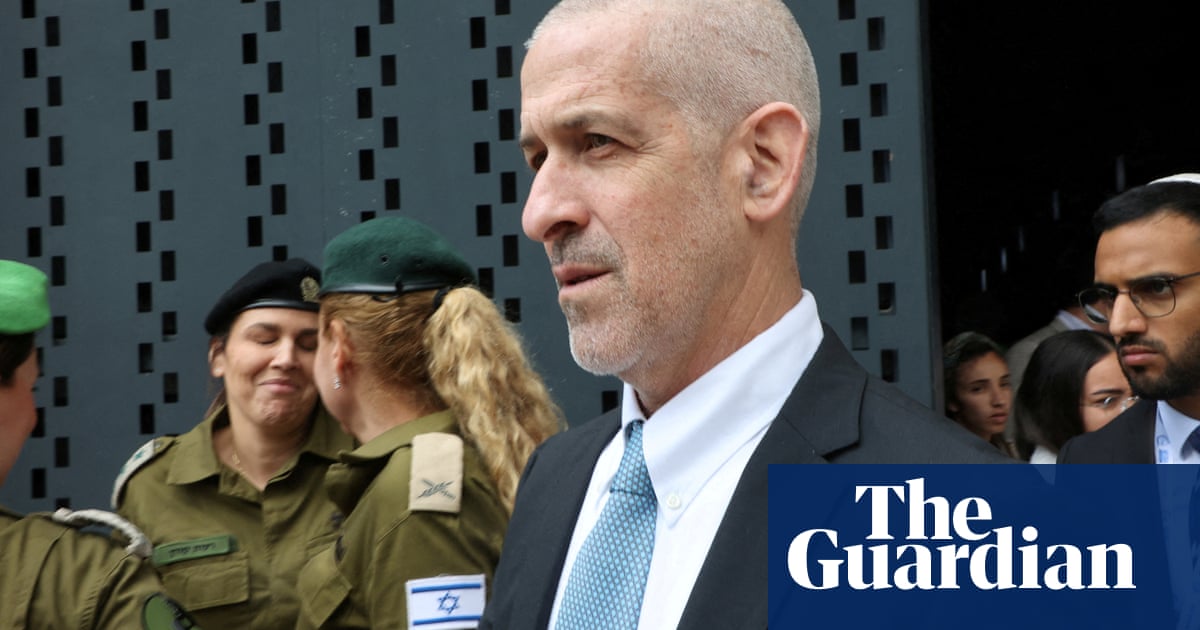The director of Israel’s internal intelligence agency, Shin Bet, has alleged thatBenjamin Netanyahufired him for refusing to pledge his loyalty to the prime minister over the courts and use the agency to spy on anti-government protesters.
The continuing battle between Netanyahu andRonen Bar, the head of Shin Bet, has pushed Israel to the brink of a constitutional crisis, after the supreme court blocked a decision by Israel’s cabinet to dismiss Bar from his post – the first Shin Bet head ever to be fired.
Bar had alleged that the decision to fire him was driven by Netanyahu’s “personal interests”. On Monday, Bar submitted an 11-page affidavit to the supreme court, which halted his firing last month, detailing his version of events that led to the breakdown of his relationship with Netanyahu and his dismissal.
Among the most serious allegations made in Bar’s affidavit was the claim that “on several occasions” Netanyahu explicitly told Shin Bet to conduct surveillance on citizens involved in anti-government protests, which he refused. Bar said the prime minister demanded the agency “provide details regarding the identities of Israeli citizens, protest activists” involved in any demonstrations against the Netanyahu government, and monitor those deemed to be “protest funders”.
Bar also alleged that Netanyahu had made clear to him that in a constitutional crisis, his loyalty must be to the prime minister and not the high court of justice. He also said “an effort was made to coerce me” to sign a document that would have helped Netanyahu avoid publicly testifying in court in a corruption case against him, which he pushed back on.
Bar alleged that Netanyahu would voice these demands at the ends of meetings, away from any official documentation. “It was clearly intended to prevent any record of the conversation,” said Bar.
“To this day, the reason for my firing is not clear to me,” he wrote in the affidavit. “But, the developments that took place over the last few months indicate one thing: at some point late last year, the decision to fire me was consolidated. It was not rooted in any professional metric, but out of an expectation by Netanyahu that I would be personally loyal to him.”
In the build-up to Monday’s submission to the courts, it was reported Bar had been put under immense pressure by Netanyahu’s government not to submit his affidavit. He had initially been due to submit it on Sunday, but requested an extra day. It was also leaked to Israeli media that Bar intended to resign in mid-May, which was immediately denied by Shin Bet.
Netanyahu’s office hit back instantly at Bar’s allegations, calling them “a complete lie” and saying the “false affidavit” would be refuted. The government has until Thursday to submit its response to the courts. Netanyahu has alleged he had lost all trust in Bar’s capacity to lead Shin Bet and accused him of a conflict of interest and politicising the agency.
The relationship between Bar and Netanyahu had become increasingly acrimonious after the 7 October 2023 attacks by Hamas militants in southern Israel. In a report into events, Shin Bet admitted the agency’s own failures but also criticised policies of the Netanyahu government it said had enabled a build-up of Hamas in Gaza.
Netanyahu has never accepted any responsibility for Israel’s worst national security disaster, which killed 1,200 people, mostly civilians, and led to 251 being abducted and held hostage in Gaza.
Bar’s authorisation for Shin Bet to open an investigation – labelled “Qatargate” – into Netanyahu’s close aides forallegedly taking payments from Qatar to promote its interests in Israel, at the same time that Qatar was partly financing Hamas in Gaza, was said to only strengthen the prime minister’s animosity. With Netanyahu already facing a multitude of corruption charges in court, political opponents have alleged he wanted to remove Bar in order to sabotage the investigation.
In his affidavit, Bar stood by the actions taken by Shin Bet. “The incitement that has accompanied the investigations, against me and all those tasked with protecting state secrets, demonstrates the connection between the investigations and the timing of my dismissal,” he said.
On Sunday night, Shlomo Karhi, a minister in Netanyahu’s Likud party, told Israeli media that the courts should not be interfering with the cabinet decision to dismiss Bar. “Those who talk about the high court of justice, how it’s the be-all and end-all, what is democratic about that?” he said.
In a press conference, Yair Lapid, the leader of the opposition, spoke out against the direct threats of violence that Bar was facing for standing up to the Netanyahu government. “The level of incitement and insanity are without precedent,” he said. “The red line has been crossed. If we don’t stop this, there will be a political assassination, possibly more than one. Jews will kill Jews.”
